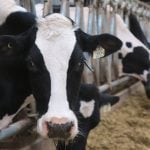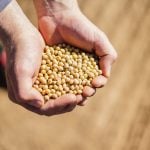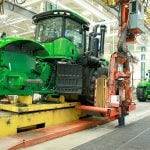As he tells us in this issue, when Manitoba’s Allan Calder wanted to start growing corn, he and his brother Murray drove 500 miles south to Iowa. Then whenever they passed great-looking crops, they stopped and drove up the laneways to ask the farmers how they pulled it off.
It’s a story we hear time and again. Or, to put it more accurately, it’s a trait we see time and again. Successful farmers place tremendous value on proven expertise. That means going to meetings and seminars. In these high-tech days, it also means putting in some serious computer time.
Read Also

Country Guide November editorial: The now, the next and the numbers
I must admit that when I was younger numbers mystified and frustrated me. In fact, my typically jovial grade six…
Still, nothing can replace a road trip, partly because it’s good to see crops and livestock under real-world conditions instead of via pictures on a screen. It’s also great to kick around with the farmer the same way, letting the conversation take its own turn. Often, it’s the questions that you didn’t know you were going to ask, and it’s the eureka-like moments of clarity that you didn’t expect to encounter that turn out to be the most important.
For us at Country Guide, having just put together our third annual cross-Canada GuidePosts issue, and having just completed another year of bringing you over 100 stories about the evolving business of farming in Canada, it wasn’t so much a eureka moment as it was a confirmation of what we had already learned.
Here it is: As agriculture gets more and more diverse, it also gets more and more the same.
Each year, the lesson gets more compelling. We’ve said it time and again. The transformative power in modern agriculture isn’t the technology, it’s the farmers who put that technology to work. Yes, you must be a master of production technology, but if that’s all you are, you aren’t a farmer.
In a must-read story in this month’s issue, Three Days, dairy farmer Ben Loewith warns a roomful of young would-be farmers that all farmers make mistakes. But there’s a difference. “Good managers make just as many bad decisions as lower-producing farmers,” Loewith says. “They just don’t live with their bad decisions.”
On his farm, Loewith continually measures and analyses every step in his production chain. He makes it the highest priority. Success, says Loewith, comes to those who are the fastest to correct their mistakes and the quickest to build on what they’re doing right.
The skills that build sustainability are business skills. The imagination that drives growth and success is business imagination.
In a real way, any of the farmers in this year’s cross-Canada issue could be managing any of the other farms we toured and make a great success of it because of their mastery of business strategy.
Enjoy your summer. For our part, we’re going to spend time thinking about how to continue evolving Country Guide. Are we getting it right? This is a great time to let us know what you think. I’m at [email protected]or you can reach me 519-674-1449.















